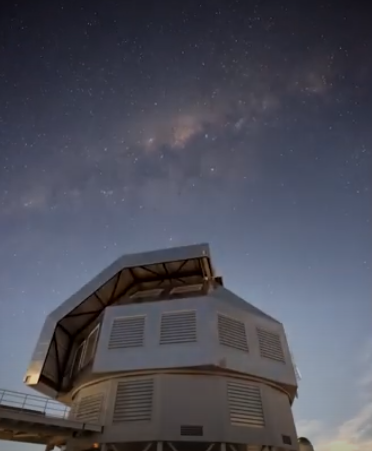On this page and in the episode of the Chalk Radio podcast embedded below, Professor Anna Frebel describes her drive to teach the general public about the history of the cosmos.
Information is power, but it's also wonder. The more you know, the more you know that you don't know anything.
— Prof. Anna Frebel
OCW: Your book, Searching for the Oldest Stars, is aimed at a lay audience, and it seems to be as much about science communication as about the science itself. Why is it important for those of us who are not in your field to be able to understand this work?
Anna Frebel: Well, these times really speak for themselves. People need to have more scientific literacy—and the wonder that goes along with it. I think that's the forgotten point, that so much wonder comes along with knowledge. Information is power, but it's also wonder. The more you know, the more you know that you don't know anything.
That might seem somewhat pessimistic, but it's really an opportunity to open yourself up. People have always asked about the cosmos. It's really, really important as a scientist to make your work accessible. Astronomy is often called a gateway science because the concepts are relatively easy to explain. I really enjoy talking to people about science and helping them to see what’s so fascinating about the cosmos.
OCW: Everybody wonders about the stars. And they're so visible and so beautiful that it feels very accessible.

Astronomers search for answers to some of humanity’s most fundamental questions. (Image from Prof. Frebel's video series.)
Anna Frebel: Yes. “Where do we come from?” is a very fundamental question for humanity. Everyone should know their own ancestry—who their parents were, and their grandparents, and the generations before. In stellar archeology, we’re doing the exact same thing in the cosmos. We're looking at stellar generations and what came before. We’re trying to study that and to educate everyone about it because it's such a fundamental question to ask.
OCW: Do you have any advice for other educators or scientists hoping to make their work more accessible? Are there any strategies that you use that you might be able to pass on?
Anna Frebel: It comes down to boiling things down to the main message. In my career development classes we talk a lot about outreach and science communication. We mostly talk about how to promote one’s work in the scientific community, but the same applies on a broader scale as well. If you’re able to condense your thoughts and your goals into one or two sentences, then you really know what you want to do and you can go after it much better than if you have nebulous, half-baked thoughts in your head.
OCW: This resource on OpenCourseWare features a series of videos that you created to go along with your book. Why did you want to make them?
Anna Frebel: I really like the lightboard. I like being able to face the audience and write things on a board, whereas in traditional teaching you have to turn around all the time when you write something on the blackboard, which I find tedious and weird. The lightboard is really an awesome teaching tool. That gave me the idea of condensing the book down into a series of bite-size chunks to make it more accessible. It's like the short version of the book, a little teaser, basically.
OCW: What audience did you create these videos for?
Anna Frebel: They’re really for anyone. I set up the book to be completely interchangeable and flexible. If you don't like a given chapter, you can just go to the next chapter. You could even read the chapters backwards. Different people have different skill levels, and I wanted to cater to a wide variety of folks, so I was perfectly comfortable skipping things.
The same applies to the videos. If you like one and you want to go on to the next one, that’s fine. If not, you can skip it or let it be. If you don't understand some sentence in detail, don't worry about it. It's perfectly fine not to understand the details, because it's not the details that make you amazed. It's catching a glimpse of something bigger than you, where you develop the desire to understand more. I hope viewers will go with the flow and really think about the big questions: “Where do we come from? What does this universe look like? How do I fit in?” And maybe, just maybe, “Do I want to learn more about it?”
